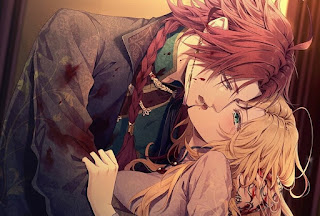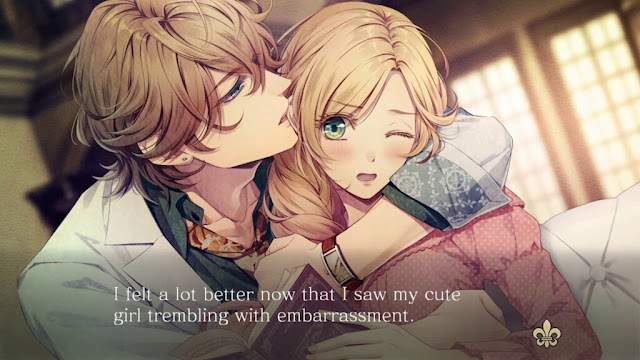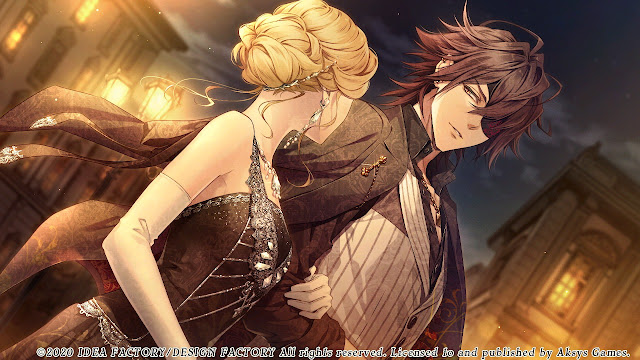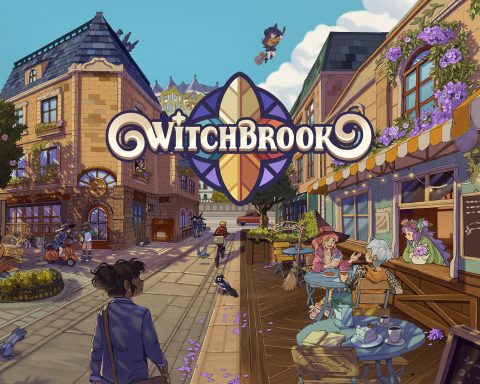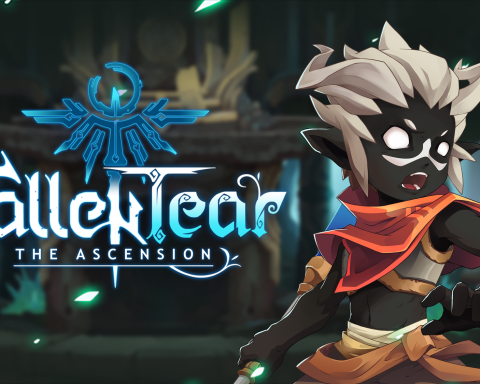Gangsters – be they yakuza, mafia, or otherwise, are aestheticised in Japanese culture in a way that lends itself very well to otome and a kind of violent, but ravishing romance story. Because of that, Piofiore: Fated Memories, which is a visual novel about three warring Italian mafia mobs, but setting aside is in every way a yakuza story, is surprising and even transgressive, and it’s a particularly good and vivid otome visual novel. It comes to us from Otomate, a developer that has a stranglehold on the upper tiers of this genre, and it is compulsive stuff; dark and affecting, but also beautiful, sensual, and impossible to put down.
As noted by Ferico Varese in his analysis of Paul Schrader’s own analysis of yakuza films: “Yakuza films are instead organised around the confluct between social obligation (giri) and personal inclination (ninjo). This dialetic, which the good-natured protagonise embodies, drives the standard plot where good and evil, individual inclination and group obligations are clearly distinguishable.”
In so many ways this little description so perfectly describes the plot of Piofiore. You play as Lili – a beautiful young woman who grew up in a church orphanage and remains there to help the next generation. One day she and her friend are attacked by some mafia, rescued by some others, and the previously innocent Lili finds herself drawn into a dark world of bizarre rules, morality, honour, love and lust. I’m not going to give this game away. Where most games try and tag everything as “spoilers” so the critic can’t talk about it, I had no embargo conditions on this review, but I don’t want to give anything away. In most game narratives “spoilers” are conventional plot points, but Piofiore genuinely relies heavily on its clandestine, labyrinthine reveals to keep you into a permanent sense of unease and suspense from almost the opening moments. All the while, as it drip-feeds the revelations and mysteries in equal measure, it slowly builds to some potentially shocking conclusions. All of this you should experience for yourself, but in broad strokes, the game is most certainly part of the conversation around the yakuza cinema tradition, with a location swap as a means to paper over that direct association.
What I can note without spoiling anything is that to say this game is “dark” is an understatement. At first, it doesn’t seem like it will go that way. The mafia lads are mafia, sure, but they’re all unblemished in their beauty, and come across as chill and suave. Based on this you’ll assume that they’ve got some kind of danger going for them, but you’ll also assume that it’s akin to how Christian in 50 Shades of Grey is supposedly dangerous. By that, I mean dark, broody and kinky enough that he allows you to indulge the fantasy of danger, but stopping well short of being actually threatening.
Like Christian, Piofiore seems far too beautiful and romantic to possibly go places. But where Christian and 50 Shades zigs into bland conformity, Piofiore very much zags. You’ll realise that when you get to the sexual violence. Oh yes. I know I just said I didn’t want to drop spoilers, but people need to know that this stuff is in there. It’s never visually explicit like it is in something like Saya no Uta, but if you had any illusions about otome games being Harlequin “romance” novels made interactive for a female audience, Piofiore will challenge those assumptions by the end of your time with it. This one has exquisitely sharp edges. There’s plenty of violence, too (it is a mafia story, after all), but we’re all desensitised to that in the context of video games at this point. It’s the (written and implied) sexual violence, humiliation, slavery and other degradations that await you that will open eyes. The “good” endings and pathways through the story naturally curb the worst of it, but however you play it, Piofiore is hiding away some moments that will make you feel genuinely uncomfortable.
With that important trigger warning out of the way, it’s never exploitative about such sensitive themes. Piofiore resists being explicit with the art and visualisation, but more to the point, that deep unpleasantness is thematic and evocative, and the right kind of challenging. That game is exploring the idea of Lili becoming an “innocent lost” and becoming wrapped up in a world of fevered passion that results in her rigorously disciplined life at the church being upended by the spirited nature of the men that surround her. There’s sensuality there, in the same way that a fiend like Dracula is presented as a deadly-but-seductive lure away from mundane and structure. That comparison is especially apt when you consider the vampiric relationship that the mafia has with the otherwise pristine city that Lili and the rest of civilized society live their lives in (I actually feel pretty clever making that comparison on the fly as I write this review).
As it is a visual novel, Piofiore isn’t overly interactive. However, it should be noted that the romance system is a little more complex than is typical for the genre. There are a couple of different statistics to manage if you want to avoid the more horrible fates for Lili. It’s actually quite difficult to do. I’d almost go as far as to say that the “bad” endings in Piofiore are the “true” endings, and the alternatives are thrown in there as a way of curbing the overwhelming darkness the narrative would otherwise express. I certainly believe that you are meant to get these bad endings before you start to work out the safer ways to navigate Lili through her adventure, making them your first experience with the respective storylines.
While we’re talking about interactivity, there’s also a neat touch where, at various moments through the story, you’ll get to jump to a “meanwhile” scene, and experience events at a different time, or even the same time, from a different pair of eyes. These are optional (and it’s actually possible to accidentally miss them), but they help to give you a more complete sense of what’s going on. As a consequence of being cast as the naive “damsel in distress” type, Lili’s not always the most reliable narrator of events, so getting a second look at the clandestine wheels in motion is a useful narrative aid.
So. Is Piofiore for absolutely everyone? Not even close. This game needs to have “trigger warning” lit up in neon because it’s going to affect some people if they play it. It is dark. It is violent, and it is unrelenting and unapologetic in pursuing a kind of mafia story that I thought was long gone from the sanitised cinema of both modern Italy and modern Japan. But as a cinematic story, set against some of the most gorgeous art we’ve seen in visual novels, Piofiore is also memorable, deftly-written, and for those that can stomach it, affecting in the right kind of way. It’s less repulsive in both intent and application than it is sobering and reflective. I must admit I never thought otome games would go to this kind of extreme. Sure they often have their dark edges, but ultimately, the romance wins through. Piofiore is the inverse of that. It’s deeply romantic, but those dark edges will be what haunts you well after you’re done.
– Matt S.
Editor-in-Chief
Find me on Twitter: @mattsainsb
The critic was provided with a copy of this game for review.

